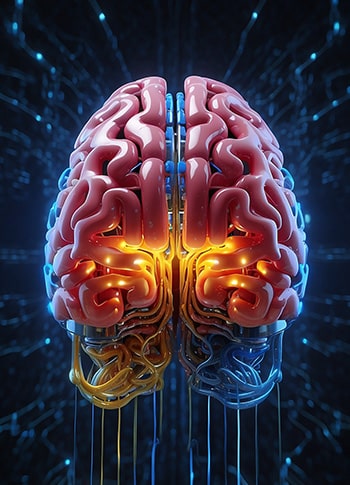What Diseases can be Treated with TPS?
TPS in Research for Use in Other Neurodegenerative Diseases
Transcranial Pulse Stimulation (TPS) is used to treat Alzheimer’s dementia. Other potential applications of TPS in the treatment of neurological diseases are being clinically researched, some for many years. Neurophysiological diseases for which TPS has been or is being investigated as a possible treatment option include:
- Other forms of dementia: As TPS has been shown to slow the progression of Alzheimer’s dementia and improve brain function, it is likely that TPS may also be helpful in other forms of dementia.
- Parkinson’s disease: TPS is also being investigated as a possible treatment option for Parkinson’s patients to alleviate motor symptoms such as tremor, stiffness and movement disorders.
- Stroke rehabilitation: There is initial evidence that TPS may help in the recovery of motor functions and cognitive abilities after a stroke.
- Depression: TPS is being investigated as a potential treatment option for treatment-resistant depression where conventional therapeutic approaches such as medication and psychotherapy may not be sufficiently effective.
- Chronic pain conditions: TPS may play a role in the treatment of chronic pain conditions by modulating pain processing in the brain.
Transcranial Pulse Stimulation (TPS) in Post-Covid: Possibilities being explored
For Long Covid or Post Covid syndromes, which are still present more than 12 weeks after the onset of SARS-CoV-2 infection and cannot be explained otherwise, no guideline medicine is currently available. Accordingly, all therapeutic approaches are curative experiments. Post-Covid, also referred to as post-acute sequelae of SARS-CoV-2-infection (PASC) or Long-Covid, is a set of symptoms and health problems that persist or re-emerge after acute COVID-19 infection. The symptoms of Long-Covid can be wide-ranging and affect a variety of systems in the body, including the nervous system. As yet, there are no specific clinical trials investigating the benefits of transcranial pulse stimulation (TPS) for the treatment of neurological symptoms in post-Covid patients. But with multicentre real-world studies demonstrating encouraging data, TPS may be considered as a potential treatment option for certain neurological symptoms associated with post-Covid in the near future. Some neurological symptoms of post-covid patients that could potentially benefit from TPS or other brain stimulation techniques are:
- Cognitive impairment: Memory problems, attention deficits and concentration difficulties are common in post-Covid patients. TPS could be supportive in improving cognitive functions.
- Depression and Anxiety: Many Post-Covid patients suffer from mental health problems such as depression and anxiety disorders. As TPS has been positively studied for the treatment of depression, it might also be of interest for post-covid patients with similar symptoms.
- Fatigue: Persistent fatigue is a common symptom of Post-Covid. Again, TPS could help alleviate this symptom in the future.
Please note that research on TPS and its applications in the treatment of neurological diseases is ongoing. Further clinical trials are needed to determine the efficacy, safety and optimal use of TPS in these disorders.



